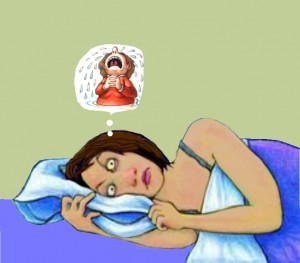When we are in a state of regret, thoughts of what could have been or should have been rerun over and over, forcing our minds and hearts to play a destructive game of detective that seems to result in more frustration and disappointment.
“IF ONLY” is the common theme of regret, like a whirlpool spinning our hearts and minds into a place of private entrapment. More than intense anger, regret is one of the hardest feelings to shake. Whatever we may imagine we’ve done wrong, negative self judgment can create and maintain an investment that makes regret seem even more real while intensifying those regrets in the process – a self-amplifying loop.
Getting out of the control of a regret feed loop can be as simple as someone accepting you, someone encouraging you, someone introducing humor to your situation, or through medication, counseling, or by other means including pulling yourself up and out by sheer will or a good rest. These may only be temporary interventions, however; creating a permanent change is ultimately up to you.


It sounds like you’re saying that even though I might build a bunch of “energy” around my self-worth and self-judgments based on or due to my regrets, it may take me a whole lot less “energy” to get out of the loop than what it took me to get into it – because regret is not real – it’s a judgment rather than a truth.
Who I am is not what I do – even though the two logic levels are related, they are not one and the same. The distinction may seem subtle, but is nonetheless important.
Regret is based on the logic level of ACTION/BEHAVIOR whereas self-judgment is connected with the logic level of SELF/BEING. When we confuse BEING with BEHAVIOR, we confuse who we are with what we do – we confuse logic levels, replacing what’s real (being) with what is not (behavior).
Certainly what we do makes a difference to who we think we are, but does not affect who we really are. Again, the distinction may seem subtle, but it is nonetheless an important distinction.